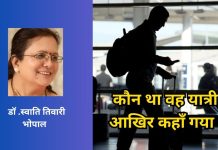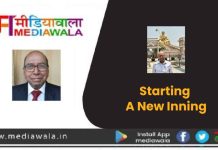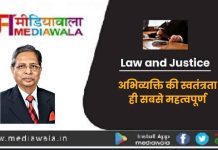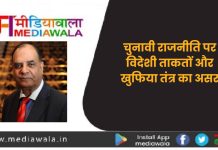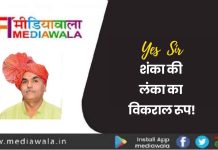

India is a vast country, geographically mentioned as subcontinent. It has a large population and rich natural resources. By its very potential, India should already have been a world power after 74 years of Independence. Unfortunately, India is still a developing country and in some areas it is still underdeveloped. Even though India has added 65 unicorns recently and many Indians figure in world’s 500 richest persons, Indian economy is struggling.
A 2020 study from the World Economic Forum found “Some 220 million Indians sustained on an expenditure level of less than Rs 32 / day — the poverty line for rural India — by the last headcount of the poor in India in 2013.” It can be better understood by fact that 68.8% Indians live on an average of two dollars a day. This makes India one of the poorest countries in the world; women and children, the weakest members of Indian society, suffer most.
CM की घोषणा के अनुरूप टोक्यो अलिम्पिक में पदक विजेता हॉकी टीम के सदस्य विवेक को DSP बनाया गया, आदेश जारी
Indian leaders, public and media are not much concerned about economic issues except occasional strident noise against rising prices. Economy is not all about prices, it is about the quality of life – satisfactory housing, medical facilities, good education and comfortable living standard. China in the same period and with equal resources developed five times of India. Many smaller countries, including, Bangladesh are taking over India in general prosperity.
MP: आगामी त्योहारों को लेकर राज्य शासन ने जारी की नई Guidelines
What did go wrong with Indian economy? India became free in 1947 and was overjoyed with the future prospects of growing economy and prosperity. It’s first Prime Minister Jawaharlal Nehru what a great visionary of socialism. He laid the foundation of modern temples of India – dams and heavy industry which soon became loss making white elephants. His suspicion of private enterprise created rigid license-quota raj. Due to Nehru’s policies, It is a very sad commentary that between 1950 and 1980 India grew at a dismal average of 3.5%. 40 years were wasted by India by not availing of its potential in the economy. Heavily bureaucratic red tape and corruption killed the initiatives of enterprising people. In eighties, Indian GDP marginally improved to an average of 5.5%. However India was fortunate when in 1991 Prime Minister Narsimha Rao steered boldly reforms by liberalising licensing and reducing taxes and duties. He put nation towards a liberal economy. Atal Bihari Vajpayee further strengthened the reforms. Policies of these two prime ministers resulted in a golden period of Indian economy from 2003 to 2010 when the GDP grew at an average of 8.5%. during UPA government. The world was impressed and India’s image soared so high that people started calling 21st century belonging to India and China. However soon the UPA II squandered the benefits of reforms by populist policies of Sonia Gandhi, corruption and inaction of Manmohan Singh government.
Modi came with a big fanfare on the rising aspirations of Indian masses. He is a strong and determined leader. However, last seven years have failed to give a big momentum to Indian economy. I appreciate Modi‘s motives and courage to improve the lot of Indians, but his pusillanimous and sometimes erratic policies have resulted in continuous downward trend. Needless demonetisation and timid finance minister have let us down. The natural calamity of Covid 19 has hit India the hardest in the world. For the last seventy years, democracy seems to have become an excuse for inefficiency. The efforts of irresponsible opposition ( of any party) is to thwart any effort to bring in new reforms. Agricultural reforms are a pointer in this regard.
We should not forget that the clout India will enjoy in the world will come only from its strong economy. India does not seem to be ready for it as it is only enjoying all shades of politics.


एन. के. त्रिपाठी
एन के त्रिपाठी आई पी एस सेवा के मप्र काडर के सेवानिवृत्त अधिकारी हैं। उन्होंने प्रदेश मे फ़ील्ड और मुख्यालय दोनों स्थानों मे महत्वपूर्ण पदों पर सफलतापूर्वक कार्य किया। प्रदेश मे उनकी अन्तिम पदस्थापना परिवहन आयुक्त के रूप मे थी और उसके पश्चात वे प्रतिनियुक्ति पर केंद्र मे गये। वहाँ पर वे स्पेशल डीजी, सी आर पी एफ और डीजीपी, एन सी आर बी के पद पर रहे।
वर्तमान मे वे मालवांचल विश्वविद्यालय, इंदौर के कुलपति हैं। वे अभी अनेक गतिविधियों से जुड़े हुए है जिनमें खेल, साहित्यएवं एन जी ओ आदि है। पठन पाठन और देशा टन में उनकी विशेष रुचि है।

